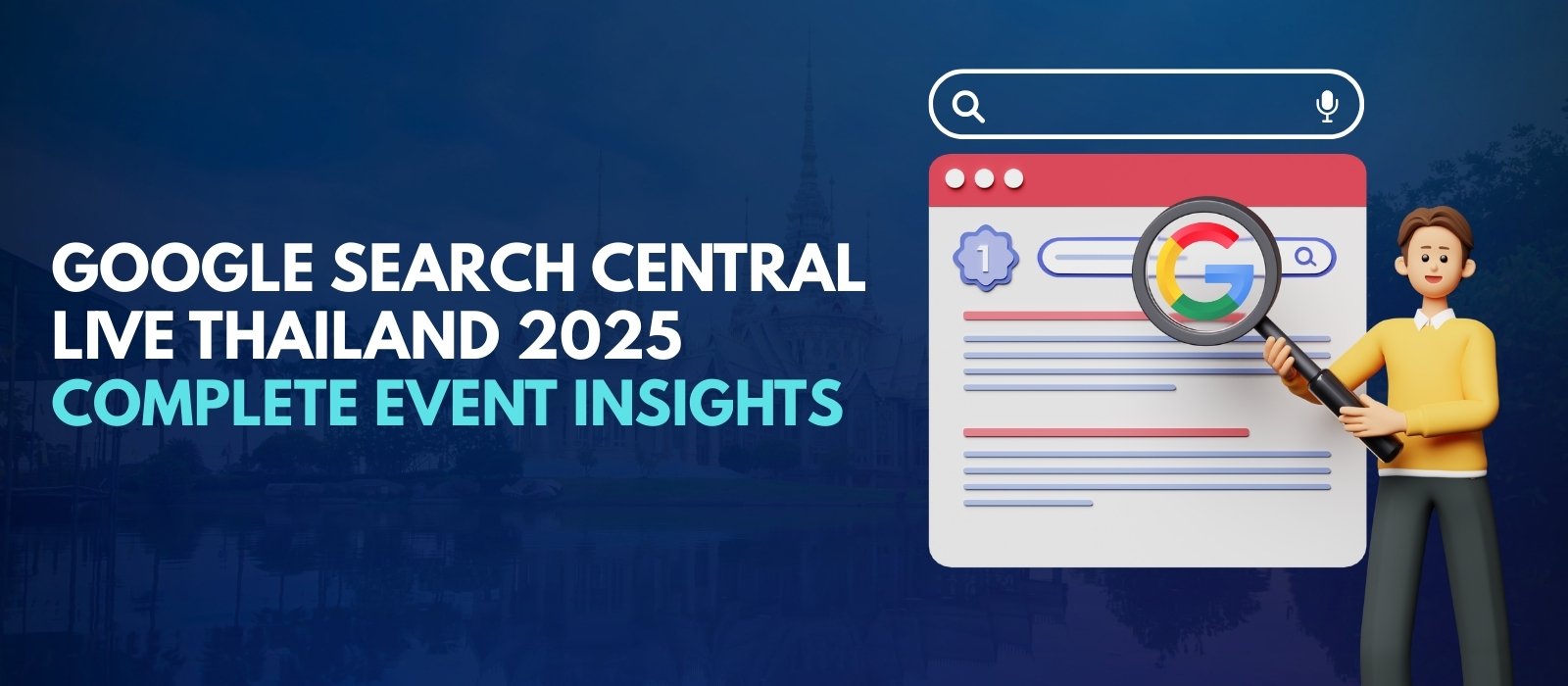
In July 2025, Bangkok hosted the much-anticipated Google Search Central Live Thailand 2025. This invite-only event brought together leading SEO experts, bloggers, and digital marketers for a rare, three-day deep dive into the world of Google Search. Each day focused on one of the key pillars of search: Discovery, Indexing, and Serving. Attendees not only gained valuable knowledge directly from Google’s search team but also experienced a relaxed and open atmosphere where they could freely interact with experts.
Event Overview
The event took place from July 23 to 25 at the Carlton Hotel Bangkok Sukhumvit. Notable Google figures such as Gary Illyes and Daniel Weisberg led sessions, answered audience questions, and shared technical insights. This intimate format allowed for deeper discussions and practical demonstrations.
The event structure was simple yet effective. Day one covered Discovery, day two focused on Indexing, and day three addressed Serving, which directly relates to ranking in search results.
Day 1: Discovery (Crawling and Finding Content)
Understanding Discovery
The first day explained how Google finds content across the internet. Discovery starts when Googlebot follows links or reads submitted sitemaps. From there, the system decides which pages to visit and how often to check them for updates.
Crawl Budget and Efficiency
A key insight from the sessions was that crawl budget optimization is essential, especially for large websites. Soft 404 errors were highlighted as more problematic than hard 404s because they waste crawl resources and send misleading signals to Google’s systems.
Practical Tips
Participants learned to:
Maintain an accurate XML sitemap
Use robots.txt effectively to control crawling
Keep site structure simple so important pages are easily found
Day 2: Indexing (Processing and Storing Content)
How Indexing Works
Once content is discovered, Google processes it for inclusion in its search index. The sessions revealed that Google maintains a massive index that does more than count words. It understands their meaning and context, which is especially important for AI-driven search features.
Separate Indexing for Different Formats
HTML pages, images, PDFs, and videos are indexed separately. This means that non-HTML formats require more processing time. Attendees were encouraged to ensure these files are optimized and supported by relevant structured data.
Schema and Accuracy
Google confirmed that schema markup can be safely used without penalty if it accurately reflects the page content. False or misleading schema can harm a site’s credibility.
Knowledge Across the Web
Google’s systems do not just look at one website in isolation. They build an understanding of content across the internet. For less known topics, clear and detailed explanations help Google connect the dots.
Day 3: Serving (Ranking and Displaying Results)
How Serving Works
Serving is the stage where Google decides which results to display for a user’s search. This involves matching the query with relevant indexed pages, considering signals like content quality, page speed, and trustworthiness.
Ranking vs Indexing Signals
One important clarification from Google’s team was that ranking signals are separate from indexing signals. Indexing determines if a page can appear at all, while ranking decides its position.
AI Integration
Gary Illyes reassured attendees that no new secret tricks are needed to appear in AI Overviews. The same crawling and indexing systems still apply. However, accuracy in content is crucial, especially for AI-generated answers, because responsibility lies with the source website.
Using Google Tools
Daniel Weisberg compared Google Analytics, Search Console, and Google Trends, explaining that Search Console remains the most reliable source for organic traffic data. For new sites, he advised generating traffic from other channels first to help establish an initial search presence.
Key SEO Insights from the Event
Soft 404s Are a Bigger Problem Than Hard 404s
Soft 404s consume crawl budgets and harm a site’s reputation with Googlebot. They should be identified and corrected quickly.
Accurate and Context-Rich Content Wins
Google values content that provides complete and clear answers, especially for niche topics. Contextual depth helps the indexing system understand and categorize your content better.
AI in Search Still Relies on Core SEO
Even with AI features, the foundation remains the same. Well-structured, relevant content that is easy for Googlebot to crawl and index has the best chance of ranking.
Use of Schema for Visibility
Properly implemented schema can improve visibility, but it must be truthful and aligned with the actual page content.
Applying the Lessons
1. Audit Your Crawl Health
Check for crawl errors, unnecessary redirects, and soft 404s. Keep your XML sitemap current and your robots.txt file precise.
2. Improve Indexing Signals
Ensure important pages are linked internally and free from rendering issues. Use structured data to enhance how Google understands your content.
3. Focus on Content Quality
Write for people first, with natural keyword use and helpful explanations. This builds trust and authority over time.
4. Track and Adapt
Use Search Console to monitor changes in impressions, clicks, and ranking positions. Combine this with Google Trends to identify new opportunities.
Why This Event Was Important
The Google Search Central Live Thailand 2025 was not just another SEO event. It was a direct learning experience from Google’s own search team. The format encouraged genuine interaction, making it easier for attendees to ask questions and clarify technical concepts. The relaxed atmosphere, combined with expert-led sessions, created a perfect environment for knowledge sharing.
Conclusion
This three-day deep dive proved that while AI is transforming search, the basic process of Discovery, Indexing, and Serving remains unchanged. SEO professionals who master these core areas will continue to succeed, no matter how search evolves. The event in Bangkok showed that quality content, proper technical setup, and consistent monitoring are still the keys to visibility in Google Search.
